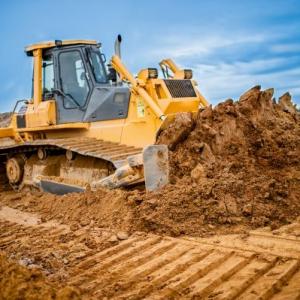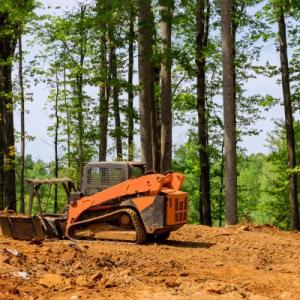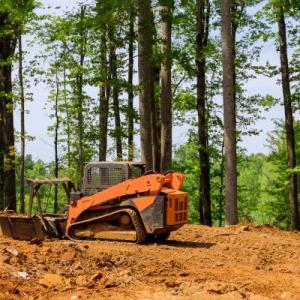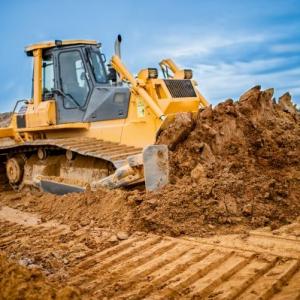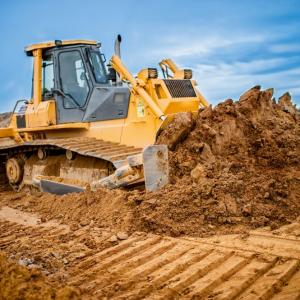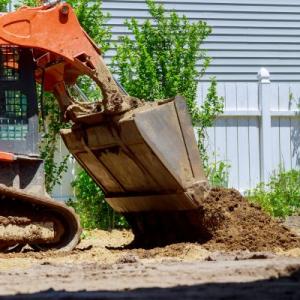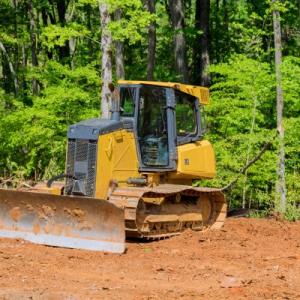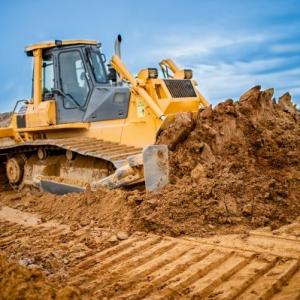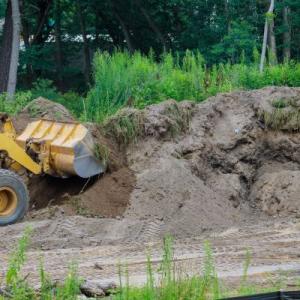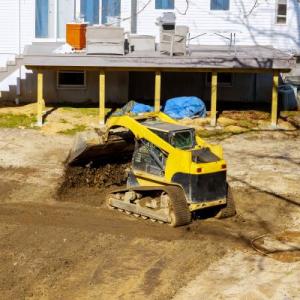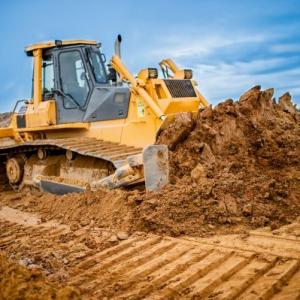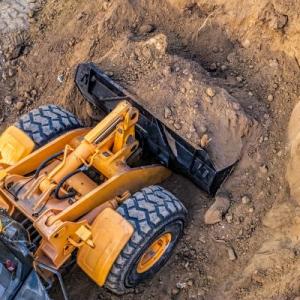Land Grading: Bakersfield
Land Grading in Bakersfield
Get help with Land Grading in Bakersfield. Fill out the form above and we will connect you with local Bakersfield pros. Land grading offers numerous advantages for property owners. This process involves reshaping the land to create a level surface, which helps with proper drainage and prevents water accumulation. By eliminating low spots and filling in high areas, land grading promotes a more uniform and stable foundation for construction projects. Additionally, it enhances the aesthetic appeal of the property by creating a smooth and even surface. With improved drainage and a level landscape, land grading can also help prevent erosion and reduce the risk of flooding. Ultimately, investing in land grading ensures a more functional and visually appealing property.Land Leveling
Land leveling is a crucial process that involves the reshaping and flattening of uneven surfaces to create a more even and balanced terrain. This technique offers numerous benefits for property owners and developers. Firstly, land leveling enhances the aesthetics of the area, providing a visually appealing and well-maintained appearance. Additionally, it improves the functionality of the land, making it easier to construct buildings, roads, and other structures. By eliminating slopes and unevenness, land leveling also helps prevent water drainage issues, reducing the risk of flooding and soil erosion. Furthermore, it facilitates efficient irrigation and promotes optimal plant growth, making it ideal for agricultural purposes. Overall, land leveling is an essential step in optimizing land use and maximizing its potential for various applications.Site Grading
Site grading is a crucial process in construction and land development, ensuring a level and stable foundation for any structure. It involves reshaping the land, removing excess soil, and leveling the surface to prevent erosion and drainage issues. Site grading also helps in optimizing the use of the available space, allowing for efficient construction and landscaping. By properly grading a site, it minimizes the risk of structural damage, foundation issues, and water accumulation, ensuring the long-term stability and safety of the property. Additionally, site grading promotes proper water runoff, reducing the potential for flooding and water damage. Overall, site grading plays a vital role in creating a well-prepared and functional site for various construction projects.Earthworks
Earthworks refers to the process of manipulating and shaping the earth's surface to create a desired terrain or prepare an area for construction purposes. This essential service offers a range of benefits for various projects. Earthworks enable the leveling of uneven ground, ensuring a stable foundation for structures. It also facilitates the excavation and removal of unwanted materials such as rocks, soil, or debris, allowing for efficient construction. Additionally, earthworks play a crucial role in land development projects, including road construction, landscaping, and drainage systems. By reshaping the land, earthworks help optimize the use of space and enhance the overall functionality and aesthetics of an area.Excavation
Excavation is a crucial process in construction and landscaping projects that involves the removal of earth, rocks, and debris from a designated area. This service is typically provided by experienced professionals equipped with specialized machinery, such as excavators and bulldozers. Excavation offers several benefits, including the ability to prepare the ground for building foundations, create trenches for utility lines, and shape the landscape for improved drainage. It enables the efficient removal of unwanted materials, allowing for the implementation of various construction or landscaping plans. Additionally, excavation is essential for site preparation, ensuring a safe and stable environment for future projects.Soil Compaction
Soil compaction is a process that involves the mechanical compression of soil particles, resulting in increased density and reduced pore space. This technique offers several benefits for various applications. Firstly, soil compaction enhances soil stability, making it more resistant to erosion and reducing the risk of landslides. Secondly, it improves load-bearing capacity, making it suitable for construction projects such as roads, buildings, and foundations. Additionally, compacted soil allows for better water infiltration and drainage, preventing waterlogging and promoting healthy plant growth. It also helps in reducing soil settlement, which can lead to uneven surfaces and structural damage. Overall, soil compaction plays a crucial role in ensuring the long-term durability and stability of various structures and landscapes.Slope Stabilization
Slope stabilization is a crucial process that offers numerous advantages for property owners. It involves implementing effective techniques to prevent soil erosion and maintain the stability of slopes. By opting for slope stabilization, property owners can ensure the long-term safety and protection of their land and structures. This method helps to prevent slope failure, landslides, and other potential hazards, reducing the risk of property damage and potential harm to individuals. Additionally, slope stabilization enhances the overall aesthetics of the landscape, promoting a visually appealing environment. Moreover, this process can increase the lifespan of infrastructure, such as roads, buildings, and retaining walls, by preventing soil movement and erosion. Overall, slope stabilization is a valuable investment that provides peace of mind and safeguards property value.Land Grading FAQ
Q: What Is The Purpose Of Land Grading?
Answer: The purpose of land grading is to create a level and even surface by reshaping the land, removing any unevenness, and properly directing the flow of water. This helps to prevent soil erosion, improve drainage, and create a stable foundation for construction or landscaping projects.Q: How Does Land Grading Affect Drainage On A Property?
Answer: Land grading plays a crucial role in determining the drainage patterns on a property. By properly shaping the land's surface, grading helps to direct water away from structures and towards appropriate drainage systems. This ensures that water flows efficiently and prevents issues such as flooding, erosion, and water damage.Q: What Are The Potential Benefits Of Land Grading For Landscaping Or Construction Projects?
Answer: Land grading offers several potential benefits for landscaping or construction projects. It helps to create a level surface, ensuring proper drainage and preventing water accumulation. This promotes healthy plant growth and reduces the risk of erosion. Additionally, land grading provides a stable foundation for construction, ensuring structural integrity and minimizing future maintenance issues.Q: Are There Any Potential Risks Or Challenges Associated With Land Grading That Need To Be Considered?
Answer: Yes, there are potential risks and challenges associated with land grading that need to be considered. Some of these include soil erosion, drainage problems, damage to existing vegetation, and potential impact on neighboring properties.Land grading is the process of leveling and shaping the surface of land to create a more even and smooth terrain. It involves using heavy machinery, such as bulldozers and graders, to remove excess soil, rocks, and other debris, and redistribute them to achieve a desired slope or contour. Land grading is commonly done for various purposes, including preparing a site for construction, improving drainage, preventing erosion, and enhancing the overall appearance of the land. By ensuring proper grading, the land becomes more suitable for building structures, landscaping, and other land development activities.

